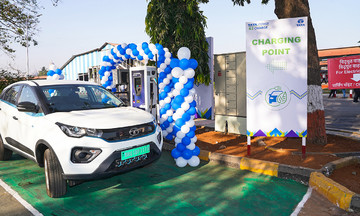Toyota Vietnam revealed this information on 7/8 at an event commemorating 30 years of localization, held at its factory in Phu Tho (formerly Phuc Yen, Vinh Phuc). According to the Japanese automaker, local suppliers currently lack the capacity to produce highly precise and complex components. Most suppliers primarily operate in the motorcycle industry and have expanded into the automotive sector.
The Vietnam Association for Supporting Industries (VASI) has long highlighted the issue of supplier capabilities. According to VASI experts, domestic suppliers are technically capable of producing complex parts. However, the required investment is substantial, while the low output makes profitability challenging and discourages investment.
Toyota Vietnam also acknowledged this factor, noting that the depreciation cost of parts is high due to large investments and low production volumes. Market size is a major contributing factor. The small market and the focus on parts for domestically assembled vehicles limit economies of scale and prevent cost reductions. The company stated that locally produced parts are currently more expensive than imported ones.
 |
Display of localized parts at the Toyota factory in Vinh Phuc, Phu Tho province. Photo: Toyota |
Display of localized parts at the Toyota factory in Vinh Phuc, Phu Tho province. Photo: Toyota
Toyota Vietnam currently has 61 suppliers, including 13 purely Vietnamese suppliers, and has localized over 1,000 parts. To improve supplier quality, the automaker is collaborating with the Ministry of Industry and Trade and other industry associations on projects to enhance the capabilities of Vietnamese businesses. By the end of 2024, 29 domestic businesses had received support from Toyota, with most achieving level 3 of the 5S standard after receiving improvement consultations.
Toyota's supplier development roadmap includes supporting price competitiveness, developing independent suppliers, improving productivity, and enhancing management platforms. Businesses that have received Toyota's support are now partnering with the company to advise other businesses.
In addition to collaborating with the Ministry of Industry and Trade, in 2023, Toyota also launched a new project with VASI to enhance capacity building and connect supporting industries with automotive assemblers. During this project, they have screened and compiled a list of potential suppliers to connect with domestic assemblers.
Present in Vietnam since 1995 and assembling its first vehicle in August 1996, Toyota is a pioneer in localization. Compared to the 15 domestic suppliers between 1997 and 2010, the current number is more than four times higher.
Minh Thuy











